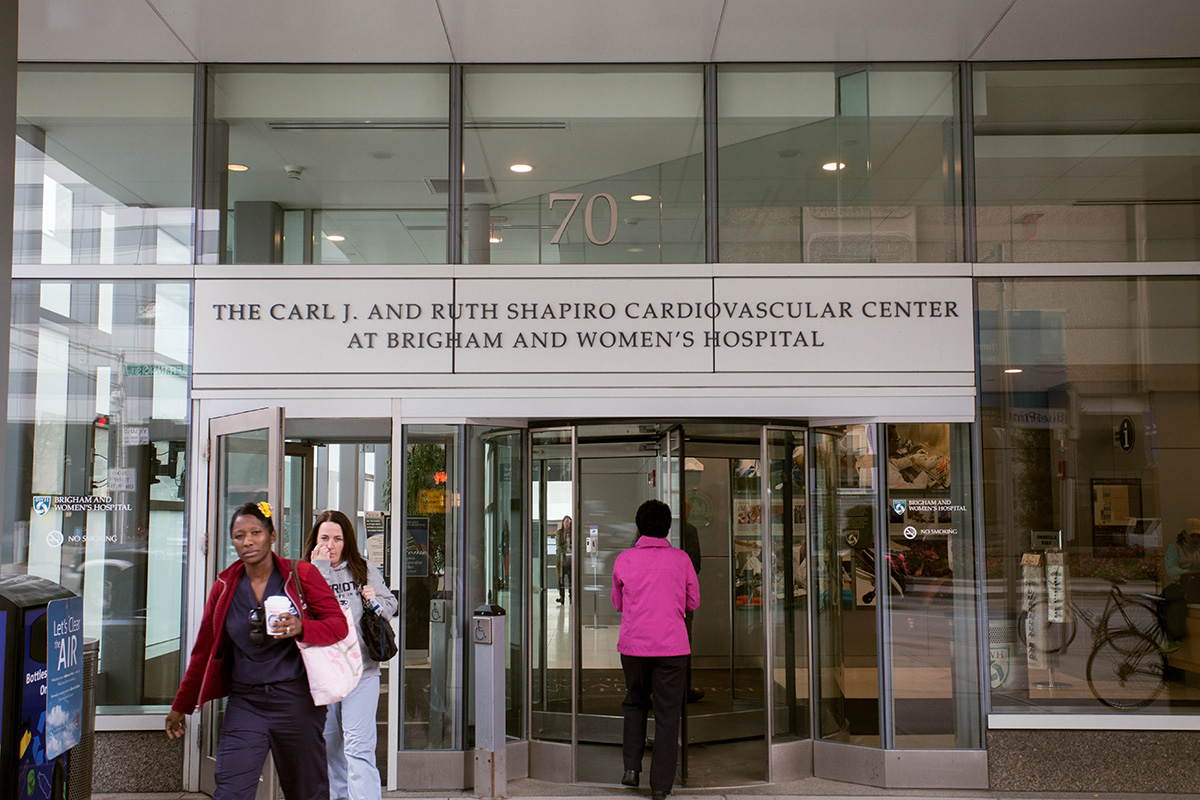Brigham and Women’s Details Preparedness Plan Ahead of Possible Nursing Strike

Photo by Alex Lau
Brigham and Women’s Hospital (BWH) officials said during a press conference Friday that the hospital will adopt an emergency incident command structure in the face of an impending nurses’ strike, scaling back to 60 percent capacity and hiring 700 temporary nurses.
“This is the same structure we’ve used for many other challenges…like the Boston Marathon bombings and the Ebola crisis,” BWH Chief Operating Officer Ron Walls said during the press conference. “This is a tried-and-true method.”
Unless last-minute negotiations—which a BWH spokeswoman said the hospital is prepared to continue throughout the weekend—succeed, thousands of nurses will strike on Monday. Nurses say the dispute stems from diminished staffing, suboptimal security, and the need for equality of benefits, while hospital officials say it’s mainly an issue of pay and health insurance.
In preparation of that possible strike, Walls says the hospital will go from its average of 790 full in-patient beds to 450 by Monday. Surgeries and in-hospital procedures are being downsized on a case-by-case basis, while emergency care will stay at full capacity. Patients have already begun being transferred to other local hospitals, and will continue to be, pending their consent, throughout the weekend.
Walls also spoke about the Brigham’s decision to extend the lockout by an additional four days, despite the nurses voting only for a one-day strike. “We have to worry about, with a one-day job action, whether there would be any settlement,” he said. “We’ve been negotiating for 10 months without any settlement. If we don’t have a settlement that day, the question is, What happens the next day?”
The Massachusetts Nurses Association released its own statement, slamming that decision.
“Brigham nurses would like the public to know that we are concerned utmost with the safety of our patients,” the statement reads. “That is why Brigham nurses voted overwhelmingly for a 24-hour strike starting Monday morning. It is solely the hospital’s decision to jeopardize safe patient care with a subsequent four-day lockout. Nurses are ready to return to caring for our patients Tuesday morning. We are fighting for our patients at the bargaining table. Brigham nurses want to protect the Brigham Way of excellent and safe patient care.”
In addition to hiring 700 temporary nurses, who Walls says are carefully vetted and well-trained, 140 of the Brigham’s staff nurses are not represented by the union, and thus will continue to work during the strike. Walls says those 840 nurses will be more than enough to care for patients while the hospital is at reduced capacity.
“No one will be turned away,” Walls said. “Patients who approach our hospital for care will receive that care like they would any other time.”
BWH officials, including Brigham and Women’s Healthcare President Elizabeth Nabel, said the hospital is still hopeful an agreement can be reached before Monday, but tensions seem to be running high on both sides of the bargaining table.
“Unfortunately, [our arguments] have been falling on deaf ears,” Jim McCarthy, a nurse on the bargaining committee, told Boston. “The frustration comes from the management not listening to us. We’re the people on the front lines.”
Walls, meanwhile, maintains that the nurses have been the party driving the strike.
“We didn’t create Monday,” Walls said. “Monday was thrust upon us.”


